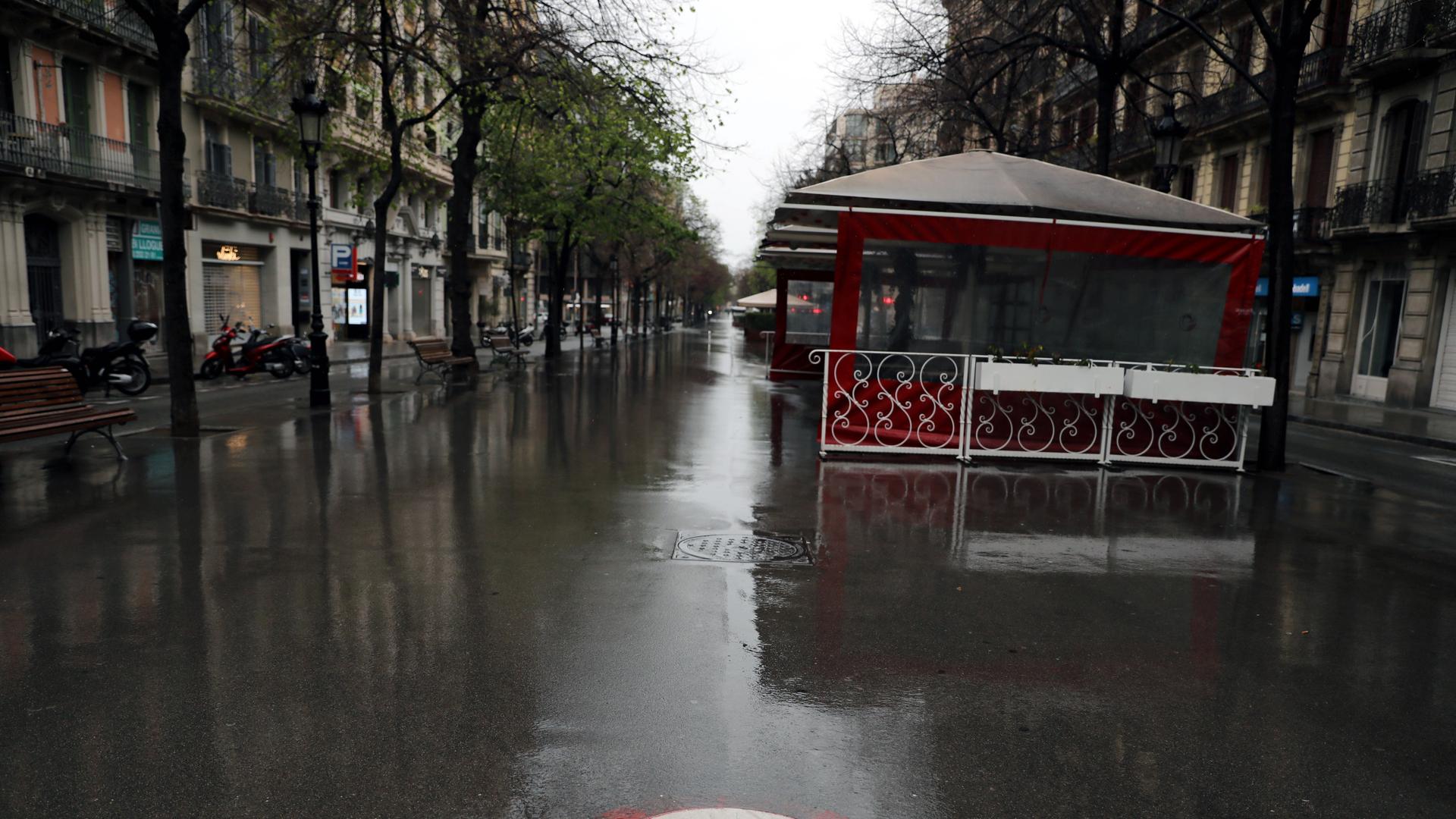In a video posted on Instagram, a sub-Saharan migrant wears a surgical mask and pushes a shopping cart full of food. He says he’s about to distribute the groceries to families in Barcelona, Spain, who can’t leave their homes.
“We know things are difficult for everyone,” the man says, looking at the camera. “But some have it harder than others, which is why we’re here.”
The video was posted by Barcelona’s union of African street vendors — or, in Spanish, el Sindicato Popular de Vendedores Ambulantes — just days after the country was put on lockdown on March 14 in response to the novel coronavirus outbreak. For over three weeks now, the union has been distributing food and other necessary items every day to hundreds of families in vulnerable situations — including fellow street vendors.
Related: Coronavirus lockdown: A tale of two South Africas
Spain is one of the countries hardest hit by the coronavirus pandemic — second only to the United States. Over the weekend, the number of infections in Spain surpassed those in Italy — with more than 146,690 cases as of April 8. There have been more than 14,600 fatalities due to COVID-19, and intensive care units across Spain have been overwhelmed for weeks. Many hospitals lack equipment like ventilators and protective material for staff.
Related: Under lockdown in Spain, hotels transform into field hospitals
“We’re part of the community and need to contribute during these difficult times.”
“We’re part of the community and need to contribute during these difficult times,” said Lamine Sarr, one the union’s founders who migrated from Senegal in 2006.
The union has been around since 2015, and is made up predominantly of sub-Saharan migrants, many of whom are undocumented. They make their living selling merchandise in Barcelona’s touristy areas, setting up blankets to display fake Louis Vuitton bags and knockoff soccer jerseys that they can easily pick up and walk off with when the police arrive. In Spain, the street vendors are called manteros — for the Spanish word manta, which means “blanket.”
Related: Coronavirus restrictions challenge customs of ultra-Orthodox in Israel
But now, the quarantine has forced them to pack up their things and stay home.
“[Street vendors] don’t get unemployment,” said Sarr, who himself was a mantero for many years. “They’re completely excluded [from] the system and don’t get any social benefits.”
He said many have now been left without an income and cannot afford to pay rent or buy food.
“It’s a crisis on top of another crisis,” said Aziz Faye, another spokesperson for the union. He migrated from Senegal in 2007. “Street vendors were already having a hard time with police persecution.”
Selling merchandise without a permit is illegal in Spain — street vendors often face fines of more than $350 and risk getting detained because of their lack of papers. Unionizing helps put pressure on authorities to decriminalize their activities.
Related: Taiwan’s success in fighting COVID-19 is overshadowed by global politics
Three years ago, the union opened up a clothing store called Top Manta, where they sell T-shirts and sweaters with original designs made by some of the union members themselves. The clothes say things like: “Fake system, true clothes” and “No person is illegal.” The shop gives migrants stable jobs, and the profits help fund the union.
But in late March, the space was turned into a much different type of workshop. Dozens of union members — sitting six feet apart — work every day to make thousands of surgical masks and gowns. The supplies are for health care workers, caretakers and anyone else in need of protective gear.
Mercè Guarro is one of them. She’s an eye doctor at the Hospital de Granollers, about 30 minutes outside of Barcelona. Her routine exams have largely been canceled, but Guarro is still working long hours at the hospital to help with the coronavirus crisis.
“You run out of surgical masks and maybe 10 days go by before new material comes in. The hospital goes through roughly 2,000 masks a day.”
“You run out of surgical masks, and maybe 10 days go by before new material comes in,” Guarro said. “The hospital goes through roughly 2,000 masks a day.”
Related: What the US can learn from West Africa to slow the spread of coronavirus
It’s during that period that the hospital depends on donations from places like Top Manta. Guarro said local businesses provide the material, and Top Manta turns it into masks and gowns.
“The first time I picked up gowns from them, I sat in my car after and cried,” she said. “It was very emotional.”
Faye said the union plans to continue distributing food and making protective gear as long as it’s needed.
“There are basic needs that aren’t being met right now,” he said of the lack of government support for Spain’s street vendors. “So, we decided to fill this need ourselves. The solidarity needs to be stronger than any pandemic, so we can keep calm. If people are united, there’s no room for fear.”
